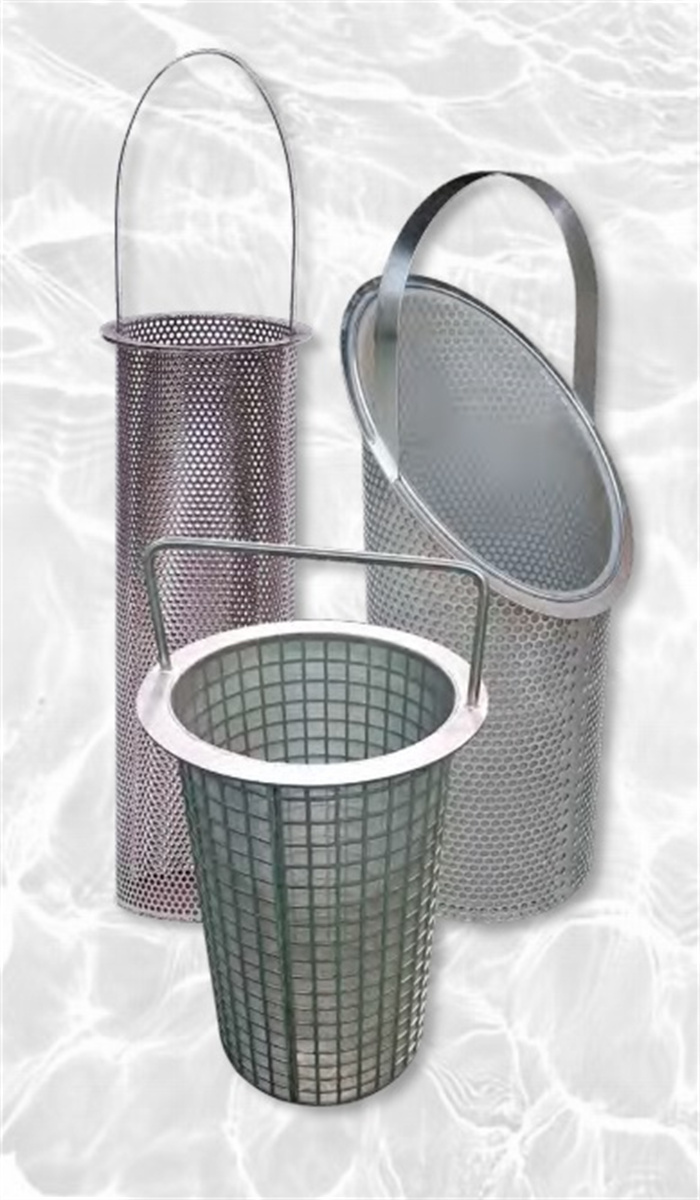Plastic-free, stainless steel mesh designs are becoming more important in the treatment of wastewater. Ursula Herrling-Tusch, specialized journalist, gives a brief overview of the selection by GKD, a manufacturer of metal, synthetic and spiral mesh filters.
Of the many solutions GKD has produced for environmental technology, this article looks at three: firstly, high-performance filtration solutions for mechanical wastewater treatment with pore openings of 5 to 1,000 µm; secondly, cascade filters and crucibles for sampling and analyzing microplastic loads in outlet or mineral water; and four-ply Trimetric filter media laminate for hot gas filtration. All three products are made from plastic-free filter media and GKD’s filtration experts are always happy to discuss the added value of its media woven from stainless steel for a clean environment and maximum water quality. Ss Filter Mesh

The stainless-steel mesh designs and filter elements are designed with mechanical robustness, wear-resistance and weldability. They also prevent contamination of the water through plastic abrasion. With almost one-hundred percent recyclability, they are also the intelligent alternative to the unavoidably high waste volume that goes with plastic media.
The stainless-steel filtration meshes respond to customers' increasing sensitivity to the use of plastic media or adhesives in processes. The meshes help to reduce the environmental load and give companies access to important saving potentials as far as their CO2 balance sheet is concerned.
Optimized dutch weaves In the water industry, the optimized dutch weaves (ODW) mesh range with pore sizes of 5 – 15 µm is a multi-talent. From outlet filtration of municipal sewage plants to large industrial treatment plants for process and service water, filter cartridges for drinking water pipes in domestic installations, domestic appliances to avoid microplastic load or scientific devices for sampling of microplastic loads: optimized dutch weaves made of stainless-steel mesh provide outstanding performance everywhere.
The sampling basket developed by GKD is an example of this. Its core element is an integrated filter cascade of up to six sieve pans with filter media of different pore sizes. It enables, for example, the scientific sampling of tire abrasion, which, in Germany, is the biggest cause of microplastics in the sea, at 110,000 metric tons annually.
Crucible A crucible developed by GKD together with the German Institute for Materials Research and Testing (BAM) and the German Federal Environmental Agency (UBA) is for the sampling and analysis of drinking and mineral water. The core element of this patented sampling body is an optimized dutch weave with 5 µm pore opening.
Worldwide, drinking water from the tap or plastic bottles is considered the main source of microplastics in the human body. To date, however, there have not been any recognized, uniform methods for sampling and analysis of the plastic particles, with the result that comprehensive monitoring and valid statements have not been possible.
However, thanks to the crucible this methodology now exists. It is also set to be incorporated in future legislation as a new standard procedure. This is supported by the patented construction of the crucible from ODW 5, which is welded onto the base of the container for the mineral water to be sampled.
The filter cake of the conveyed mineral water sample is deposited in it directly. As the crucible, like all other components of the sampler, is made of stainless steel, the entire construction can be accommodated directly in the test device for the two-stage TED-GC-MS analysis process (a combination of Thermal Extraction and Thermal Desorption).
Unlike before, sampling with the crucible eliminates time-consuming intermediate steps, which pose a risk of contamination and material loss. It contributes towards significantly faster sampling and greater measuring precision: detection rates of over 90% mean microplastic particles of less than 1 µg/l can be detected. Since this method of sampling and analysis can be used not only to investigate mineral water from PET bottles but also to analyze all other water-based liquids filled into plastic containers.
Porometric is a further development of the optimized dutch weaves. At IFAT GKD will presenting a high-performance mesh for a variety of treatment processes in the water industry. Stainless steel Porometric mesh, with pore openings of 13 - 25 µm, is currently considered to be the best product on the market for water filtration.
Whether for industrial process water treatment, filtration of greenhouse or golf course irrigation, water treatment of aquacultures, filtration of washing water from artificial grass or ballast water filtration, Porometric's three-dimensional slit structure with almost 90% porosity increases the flow by up to a further 40% compared to optimized dutch weaves. The mesh can regenerate and in independent comparison studies of the cleaning properties of a range of plastic and metal meshes at the Karlsruhe Institute for Technology (KIT), Porometric asserted itself as the best filter medium.
Trimetric filter media The Trimetric filter media for hot gas filtration give access to significant optimization potential for exhaust gas filtration of biogas plants too. The sintered, four-ply filter media laminate made of three different stainless-steel filter media, including metal nonwoven, achieves retention rates that are as high as those of PTFE media. Unlike these polymer filter media, however, Trimetric filter media laminates are permanently temperature resistant up to 600°C and can be used wherever PTFE media no longer work. This also eliminates the need for energy-intensive reheating of the exhaust gas. Its material-specific weldability is designed to ensure secure sealing between the raw gas side and the clean gas side.
As a self-supporting filter element, the laminates do not require a support basket. Their design can also be regenerated outside the filter housing using a high-pressure cleaner. The media are not limited in cartridge length and can be used in existing cartridge filter systems without alteration. Use in existing bag filter systems or systems with filter leaves only requires a minor modification to the fasteners in the filter housing.

200 Mesh Inconel Wire Mesh Cloth Free access to this content is for qualifying individuals only. Corporate and institutional access requires an appropriate license or subscription. For more information contact institutions@markallengroup.com